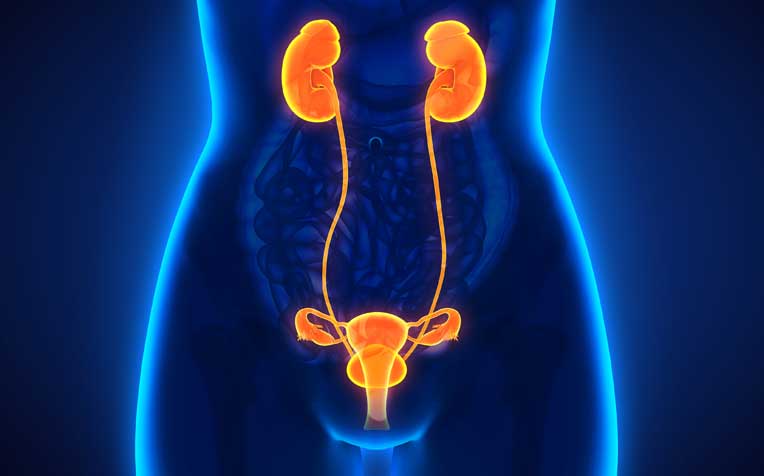
Urinary Tract Infection (UTI) can be divided into either upper tract infection (kidney) or lower tract infection (bladder).
The
Department of Obstetrics & Gynaecology at
KK Women's and Children's Hospital (KKH), a member of the
SingHealth group, explain the causes of UTI in women and how to manage it.
What is urinary tract infection (UTI)?
Urinary Tract Infection (UTI) is due to the presence of bacteria in the urine. Urinary Tract Infection (UTI) can be divided into either upper tract infection (kidney) or lower tract infection (bladder).
Pyelonephritis is the acute bacterial infection of the kidneys. Patients have severe back pain and high fever and may have frequency and urgency of urine as well. Cystitis is the infection of the urinary bladder and patients complain of frequency, urgency and dysuria (pain on passing urine).
What should you do if you have a urinary tract infection (UTI)?
General measures for simple cystitis include taking more fluids — more than two litres a day — to encourage more urine formation to flush out the bacteria.
You would need to consult a doctor if the symptoms persist or if you have a fever. Oral antibiotics prescribed by the doctor would eradicate 90 per cent of infection in a normal person. The doctor may order some investigations relevant to your condition if necessary.
Patients with severe Urinary Tract Infection (UTI) associated with fever and kidney infection may require intravenous antibiotics and hospitalisation.
Common urinary problems in women: Bladder problems and pelvic organs prolapse
The female bladder stores and passes urine at the appropriate time and place. When there are problems with bladder function, the patient will need to visit the toilet often, may be unable to pass urine, or may even leak urine.
On the other hand, prolapse of the pelvic organs such as the urinary bladder (urine “bag”), womb, and rectum (back-passage) is very common and occurs in more than 10 per cent of women.
Frequent urination, urinary urgency, and urge incontinence - know the difference
Urgency is a strong and sudden desire to void which, if not relieved immediately, may lead to urge incontinence.
Urge incontinence is an involuntary leakage of urine, usually preceded by urgency.
What are the common causes of frequent urination and urinary urgency?
| Classfication | Causes |
| Psychosocial |
|
| Urological |
|
| Gynaecological |
|
| Medical |
|
How to cope with frequent urination and urinary urgency?
You should visit your family doctor who will ask you questions on your medical history and urinary habits. After a physical examination, the doctor may perform a few simple tests such as collecting your urine specimen for analysis to exclude urinary tract infection (UTI). Depending on the cause of your condition, the doctor may start you on medication or refer you to a specialist for further management.
What is urinary incontinence?
Urinary incontinence refers to an involuntary loss of urine. Types of incontinence include:
- Stress urinary incontinence - involuntary loss of urine associated with coughing, sneezing, carrying heavy things and even running or jumping.
- Urge incontinence - involuntary loss of urine preceded by a sudden strong desire to pass urine and voiding before the ability to reach the toilet.
- Overflow incontinence - involuntary loss of urine due to an inability to empty the bladder well.
What should you do if you have urinary incontinence?
Mild urinary incontinence may not be troublesome but moderate to severe urinary incontinence can have a drastic effect of a women's quality of life. It can also cause social and hygiene problems.
| Table 52.1 Management of incontinence | ||
| Types of incontinence | Management | Comments |
| Stress urinary incontinence | Pelvic floor exercises | This is helpful in mild stress incontinence with success rate of 50%-60%. |
| Continence surgery | There are many types of continence procedures but the gold standard is the suburethral sling procedure (figure 52.1). It involves minimally invasive procedure, which can be performed as a day surgery procedure. Its success rate is about 90%.
| |
| Urge incontinence | Oral medication | Medication will relieve the symptoms in 80%-90%. |
| Overflow incontinence | May require clean intermittent draining of urine or placement of continuous urine catheter (tube). | May be prone to urinary infection. |
These women should seek help from their doctor. Management depends on the type of incontinence and the severity of the condition.
Ref: N18


















 Get it on Google Play
Get it on Google Play